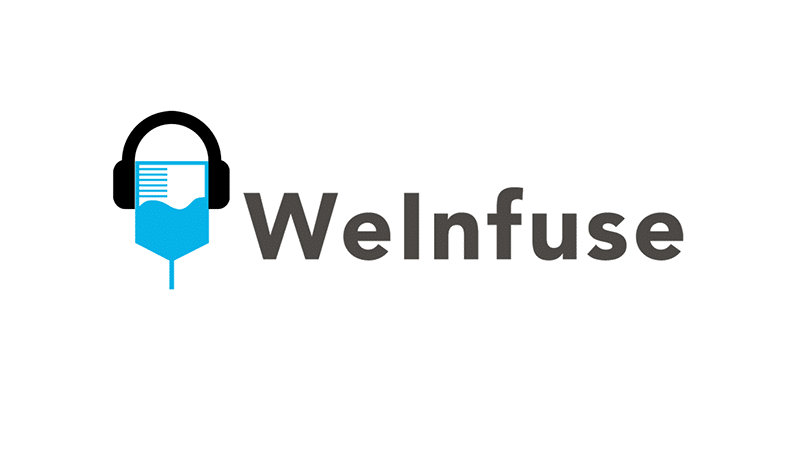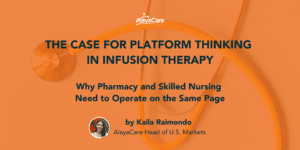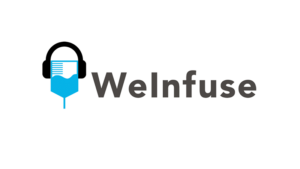David “Woody” Miller of AWP Consulting walks listeners through lessons learned in sourcing, group purchasing organizations, pricing, and manufacturer rebates for infusion centers.
Follow on Amazon Music II Subscribe on Podbean II Subscribe to iTunes
Transcript: How to Select Distribution Partners and Negotiate Pricing
Amanda Brummitt: We Infuse podcast, episode number 49. Welcome to the We Infuse podcast. My name is Amanda Bremit. In every episode, we give you a seat at the table as we talk to Infusion Center owners, operators, and experts so that you can get the insight you need to run a thriving practice. In this episode, we talk with Woody Miller. He’s the principal of AWP Consulting Services. Woody shares the importance of great distributor agreements and solid pricing so the providers can focus on what’s most important, their patients. Hello again, it’s Amanda Brummett. And as I said, I’m here today with Woody Miller. Woody is the principal at AWP Consulting Services. Woody, thank you so much for taking time to be here for the We Infuse podcast listeners.
Woody Miller: Absolutely. Thanks for having me.
Amanda Brummitt: Yeah. So I’ve heard a little bit about your background. It sounds fascinating. Can you tell our listeners about it and how you got into the infusion industry?
Woody Miller: Oh, certainly. Yeah, no. And happy to happy to be here. Certainly heard a lot about and heard a lot about the the podcast and I’ve listened to it quite a bit. And so. Well, I think it’s a great thing that we’re doing for for the industry. I spent the last 14 years of my career in healthcare, last 13 of them. I was working for one of the large healthcare distributors Cardinal Health. I served in various roles across the infusion industry throughout my time at Cardinal primarily spent my early years of my career in our corporate development group doing mergers and acquisitions for the enterprise. So, had the opportunity to see a lot of different healthcare companies and a lot of different interesting things that were going on across the across the industry. As part of that work, I was had the opportunity to facilitate the acquisition of Metro Medical. And this was based in the greater national area and was Cardinal’s entrance into the infusion space outside of oncology. And so this is where I really began learning more about the infusion business and a lot of the various therapy therapies that were being introduced into the market. Primarily we were thinking about, some of the biosimilar products that were coming out for infliximab and evaluating how that would impact the future of the of the industry. After that I then headed up our strategy team for our specialty solutions business segment. We spent a lot of time thinking about various initiatives and partnerships for the business that would continue to support the infusion market. And this is about the time I think where I had the opportunity to meet Brian Johnson and Reese Norris of We Infuse, and this was probably around the time. 2018, I think and really learn more about what they were doing in the market and became very intrigued with with the technology that they were offering to to, to customers. After this I went on to become our national sales director for Cardinals Infusion Business. Working working at Metro Medical had the privilege of working with hundreds of rheumatologists, gastroenterologists neurologists. and ambulatory infusion providers across the country and really enjoyed that time. And that was really the first experience I had of getting much closer to the patient and really understanding some of the challenges that they were experiencing. And then I’ve always had an entrepreneurial to to start and and run a business. And within the last year or so had the opportunity to start my consulting company AWP consulting services. When we were primarily, focused on supporting infusion providers through the contracting process for specialty medications which we often find can be very complex and time consuming for them to manage.
Amanda Brummitt: I bet. Now I have to ask what inspired you to make that jump? Cardinal is a great company and probably like many of our owners and operators. A lot of people had very comfortable jobs and then decided to make the leap and listen to that entrepreneurial call. What did that for you?
Woody Miller: Yeah, it’s a good question. As I mentioned, yeah, always had an interest to do something. I think a lot of it really just precipitated around the fact that I identified a need in the market. I really felt like, if you’re going to run or manage a business certainly helps to identify what your customer looks like. And I felt very strongly about, not only understanding and knowing the industry, but also felt very confident in my ability to sell these services and work with clients to ultimately help them, and focus on patient care.
Amanda Brummitt: That makes a lot of sense. I can see that for sure. So you’ve had a unique view in the infusion industry. I’m imagining you’ve seen hundreds, thousands of infusion centers, and I often think we, we learn best through our struggles. What would you say has been your biggest challenge in the infusion space?
Woody Miller: Yeah it’s a great question. I’d say, at least in, in my industry and where I, primarily spend most of my time. My biggest challenge is has been more around getting infusion providers to work with accurate data. So as you think about, the service that we offer today is fairly complex in terms of, looking at various different pieces of financial data and information around pricing, around rebates and so oftentimes I noticed that a lot of customers weren’t necessarily making kind of an apples to apples comparison in the data. And so it was really difficult for them to make, sound decisions to move forward and manage their business effectively because they were just struggling to sift through some of the, various different things, whether that was the contract price, whether it was looking, thinking about the manufacturer rebates there’s a myriad of kind of things that you have to think through. In making sure that the data is comparable to one another. I’d say my second biggest challenge thus far has just been kidding, infusion providers to admit that they don’t know everything about drug pricing and really evaluating their GPO and distribution options on. I don’t mean that in a negative way, but many times, the people have been in the industry for the longest feel like the consultant could potentially undermine them or make them appear as though they don’t understand the market or how to do their job. But in reality, this market is just constantly changing and evaluating drug pricing isn’t really an everyday situation that’s being managed. And so it becomes very complex for them to keep up on this. There’s just not a lot of opportunity for them to constantly be involved in all aspects of, drug pricing and evaluating their options in the market. And so that’s where we certainly come in and help them think through those critical decisions.
Amanda Brummitt: Oh, sure. Yeah. I’ve been in healthcare a little over 20 years, and I think that drug pricing is one of the most complex things. And just when I think I understand all the nuances of it, I learn about another player that I didn’t even know existed that was affecting the price of the drugs or, a rebate or it’s, yeah, I’m glad there’s people like you that understand that they can help walk providers through it and show us where all the hidden pricing is.
Woody Miller: Many many hours spent in Excel crunching numbers and lots of spreadsheets and and yeah it’s, it can certainly make your head hurt after a while, but but somebody apparently has to do it.
Amanda Brummitt: Yeah. Woody, I can see how that would be a big challenge. It sounds like something that you feel pretty passionate about and then it might be tied to an actual example is that the case?
Woody Miller: Funny you should ask. Yeah, I’ve got many cases, unfortunately, I can give you some context on one specifically that, that comes to mind but yes, there’s we had a prospective client. We started working with. And reviewing their drug pricing and they were initially referred over to us just because they had been in business for a little over a year. Weren’t really making the money they had anticipated and were actually considering shutting down the infusion center and sending most of their patients back to the hospital. As we began reviewing, the information they had provided. they provided, I immediately started noticing just some critical errors from a pricing standpoint. For example they were paying the wholesale acquisition cost on a couple key products that they should have been paying a much lower contract price on. They had also, I think they had declared some of their purchasing for specific drugs across multiple GPOs. They told me that they thought they could join all the GPOs which oftentimes, it was a little bit of a mis misleading thing about, in, in terms of the business people think they can just join any of them. And so this didn’t allow them to collect any manufacturer rebates on those products. And so, we were able to provide obviously some guidance and support and help them recognize the dollars that they were missing out on. Which, ultimately impacts their ability to remain open and serve their patients and continue to provide them with quality care at a convenient location. So it’s it’s an interesting story. Obviously, most of mine are not that drastic, but it just goes to kind of show that if we want to provide a top notch experience for patients in the industry, we need to make the contracting process, a pretty, pretty big focus for us.
Amanda Brummitt: It sounds like those margins really could make a huge difference. And in this center, even whether or not it’s ability to stay open, can you speak to that a little bit generally not about this center?
Woody Miller: Yeah, no, it’s yeah. And that’s, it’s a good question. Most people may not. Realize this, but this is a very narrow margin business. We see most, most operating infusion centers are running below six, 8% in terms of earnings. So it just becomes critical to negotiate and manage your drug pricing. We always think about kind of medication errors, but also pricing errors can be just as critical in terms of how you’re managing your center. And so just avoiding those at all costs. And really making sure that, everything is pretty well buttoned up from how do we source the medication? How, do we receive a rebate from the manufacturer? What do we need to do in order to qualify to receive that? All of those things are absolutely critical. And so. We can help infusion centers think through that, making sure that they understand what is, what’s typical in the market from a pricing standpoint, and then also help them thinking through, some of the other solutions and things to help manage that more effectively.
Amanda Brummitt: That is really great information because obviously we are all here to care for patients. We’ve got to be able to have our doors open to do that though. And so paying attention to that pricing is really key. Well, with what you’ve experienced so far, it sounds like you’ve had a lot of aha moments. What. What would you say is your biggest flat bulb moment in infusion?
Woody Miller: Yeah, it’s a, it’s another it’s an interesting question. I’d say, you know what, my biggest moment this far has probably been seen, a lot of the practices and infusion groups just struggle to figure out whether they’re making the best decision, right? I was just always shocked at the amount of time it was taking for some of them for some of the groups or customers to choose a distribution or GPO partner. Oftentimes it was exceeding six plus months and that just felt like a real tangible problem I could solve that, and really understand the impact we can have for a practice and its patients for me, at the end of the day, the patients are obviously the focus for everyone in this industry and we’re just happy to play, a small part in ensuring our clients can focus on patient care and not worry about their cost structure, oftentimes I’ll hear, customers continuously ask, Hey, do we think we have the best contract? Do we think that we’ve done this correctly? And it really holds them up in terms of their ability to move forward and focus on what, what really matters. And so, just noticing that was a real big problem and an issue in the industry has really allowed me to think about how can we effectively solve those problems and help customers really focus on things that matter, such as, patient referrals building a team opening new locations, trying to really focus on the patient and how to give them a positive experience
Amanda Brummitt: lately. Yeah. And especially for the people that are offering cash processing to patients. They don’t stand a chance at being able to offer competitive pricing if they don’t have good pricing themselves to begin with. So, yeah, it’s huge. So one of the things you and I talked about previously, and I’m super curious what your answer is what do you wish infusion centers knew about sourcing and distributors that they don’t? What are those things that you’re often shocked that people don’t know about?
Woody Miller: Yeah, it’s it’s an interesting thought. I would say some of the biggest things that I’m always surprised by is, we work with private equity firms who have, all the money in the world to go consolidate and open new locations. And we also work with, practice administrators who have been in this business for 20, 20 plus years. And I’m always surprised that, that there, there’s always something that they, that they just don’t know. And there’s always, sometimes unrealistic expectations on improving their cost of goods sold or drug pricing. Right. And so we can help them ensure that they’re being realistic with investors that they’re, that they’re ultimately able to convey to their team. What they can expect in terms of cost savings as they continue to grow or they continue to open new locations we, we see often that this helps them just move faster and execute on other critical decisions. And so, a big thing for us is really just making sure that they can understand that there’s a pretty meaningful impact ultimately to to this and how to navigate it can be somewhat complex. There’s just very few opportunities that these infusion groups have to do this. Oftentimes you’ll renegotiate your drug pricing three, maybe four times in a 10 year period. And that, that simply just isn’t enough time to, to have the experience that’s necessary to be able to to really do this in a manner that’s done well.
Amanda Brummitt: Yeah. That’s a long time. If you don’t have processing that you’re really happy with, or that’s really working for your practice. Wow.
Woody Miller: Yeah. And a lot of times we, we see that the practices are, changing, right. They’re evolving their, the mix of their products is changing. The payers are mandating various different biosimilar therapies. There’s new therapies that are coming out like a Tepeza that are taking up a, a pretty significant portion of their of their revenues. And so as the business continues to grow and evolve and change us over time. The way that business is looked at is certainly different from a pricing perspective, right? And so oftentimes the pricing can be more advantageous as they continue to grow, but also as their mix changes in a more favorable direction as well. And so I think that’s probably one of the bigger things that we always find, it’s always a little bit of a surprise to me is just how much additional, information and value is out there that can be found.
Amanda Brummitt: Yeah, absolutely. So with some of the recent supply chain issues, and I suspect the previous question applies to this quite a bit any pearls of wisdom for infusion center operators working with the current supply chain challenges?
Woody Miller: Yes. Good question here as well, Amanda. Some of the thoughts it certainly can’t solve all of the supply chain woes that we’re experiencing or going through whether it’s a result of COVID or inflation or whatever it might be one of the things that I often encourage, though, a lot of, a lot of our clients that we work with is, many of the distributors actually manufacture and private label many of the medical supplies today. So whether it’s gloves, table, paper, needles, gowns, et cetera. A lot of times the, these supplies are sold through the same exact distributor that you’re procuring your specialty drugs from. And so, the margins on those medical supplies can be, fairly strong much higher than the than the specialty drugs. And so, combining the two can be a pretty significant advantage for practices to think about. Today, a lot of them could be buying them from a. A third party medical supplies distributor that, that does not also sell the drugs. And so the ability to combine those two things can continue to help you reduce your cost of goods sold and just leverage your overall purchasing power with that entity.
Amanda Brummitt: Great advice. Thank you for that. So maybe gears just a little bit, what are you most excited about right now in the infusion space?
Woody Miller: Yeah, I would say, today, probably most excited about continuing to work with new clients and learn about their infusion goals and journey. Whether that’s a startup or a large network looking to, consolidate or scale. I enjoy working with them and helping them in a manner that I don’t think has really existed previously in the market. I’d say I’m probably also excited about how the market’s going to continue to evolve and expand. As we think about expanding access and supporting patient care as I think about the ongoing, heavy investment that’s going on in the infusion space right now, I think that often leads to new innovations and new ways of doing things. And so I’m excited about the future of the industry and to see how the continued investment in patient care is going to evolve over the next 5 10 years whether that’s ambulatory infusion, home infusion, specialty pharmacy, etc. I think it’s an, it’s exciting when, new dollars are being invested to try to make the overall process a better experience for patients.
Amanda Brummitt: Yeah, we’ve seen so many changes in the last few years. I can’t wait to see what it looks like 20 years from now.
Woody Miller: Yeah, I think it’s going to be, it’s going to be very interesting in terms of, not only the patient experience, but obviously, where they’re being treated, how they’re being treated the modalities in which which we’re leveraging in order to do that. So yeah, certainly a very exciting time to be in the industry in the space.
Amanda Brummitt: Yeah. All right, Woody. One last piece of advice that you would offer to our infusion center owners and operators.
<pWoody Miller: One last piece of advice. I would say, no matter your size or relevance, to the market should never be afraid to ask for help. We want to help you manage your infusion center more effectively, really, so you can ultimately focus on your patients. With all the challenges of running a business, as we talked about the rising cost of labor and supplies we really understand how critical it is to do this correctly. And ultimately, I think some of the best infusion providers in the country are the ones that are willing to seek help, not because they, they don’t know something, but because they aren’t afraid to learn something new. And so I guess I would say, continue to think about, how are ways you can provide. a better patient experience, but also think about, what is meaningful in terms of the overall growth that you’ve experienced? What are the goals that are, that you have for your infusion center? And ultimately, how can achieve those goals by thinking about things aside from price, but also technology and solutions. The distributors and GPOs have invested so heavily in a lot of these things that, that they’re underutilized today. And so I think those are the other piece of advice I would say is really continue to explore, what is out there in the market that can really help your infusion business continue to accelerate and achieve the goals that you have for it.
Amanda Brummitt: That makes a ton of sense. Well, Woody, thank you for all you’ve done for the infusion space. Thank you for all of the spreadsheets and the contracts so that our providers can focus on taking care of patients. And thanks for carving out a little bit of time to be on the We Infuse podcast.
Woody Miller: Absolutely. Thanks. Thanks so much for having me, Amanda.
Amanda Brummitt: That was really insightful from Woody on why good contracts are so important and so good to know that there are resources available. Well, if you aren’t familiar with the WeInfuse software platform, take a test drive to see how it can save you time and money in your practice while creating a safer place for infusions. My name is Amanda Brummett, and we’ll catch you in the next episode.
Guest Speaker:
David “Woody” Miller formerly served as the National Sales Director at Cardinal Health, and is currently the Principal Consultant at AWP Consulting Services and President of Eventus Payment Solutions. At AWP, Woody advises clients on their specialty drug portfolio to help them achieve their infusion provider goals. His focus at Eventus is to increase efficiency for clients, lower costs, and optimize merchant services across all industries.




